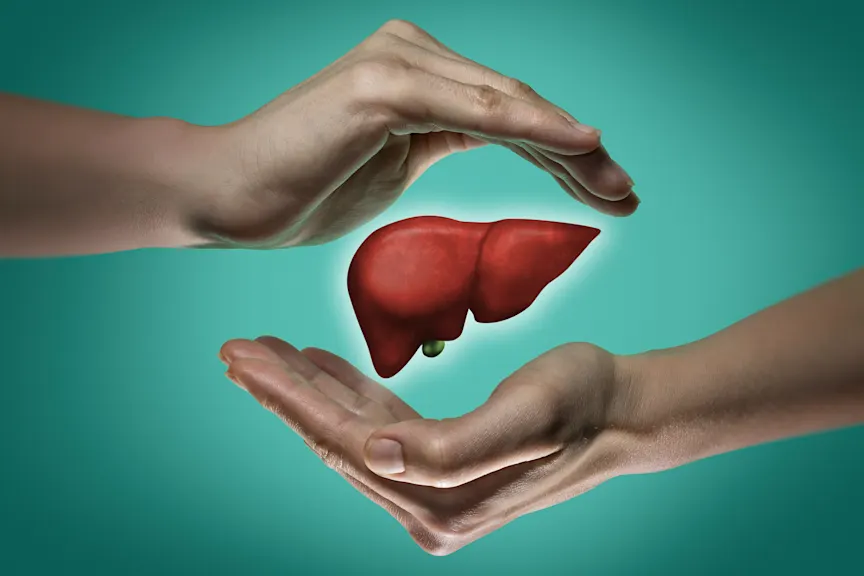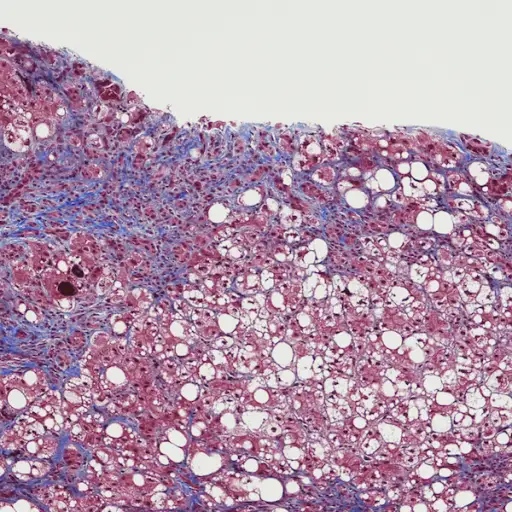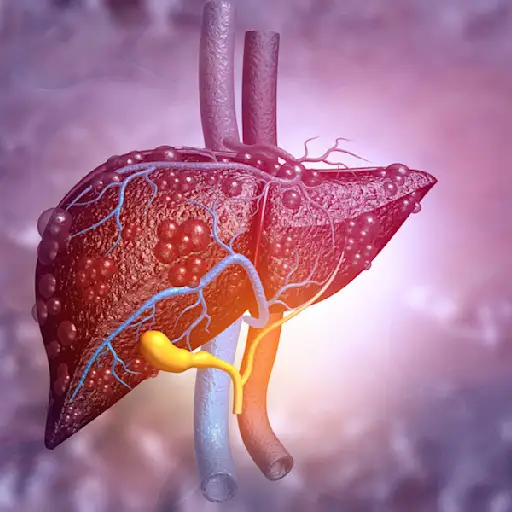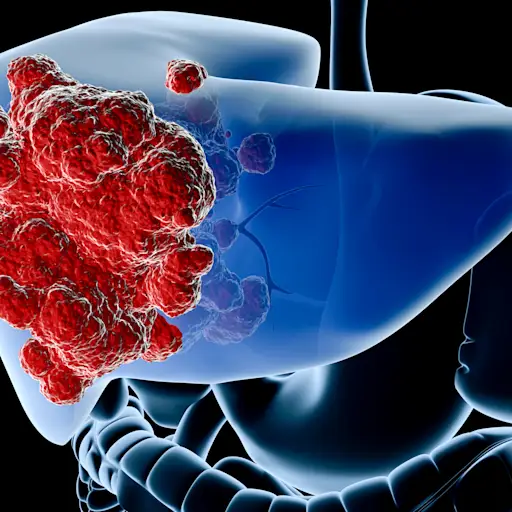This Is Your Liver on Hep C

The liver, byall accounts, is one of the most important organs in the human body. It literally cleans the blood by keeping the good things in and getting rid of toxins and helps your body maintain healthy glucose levels. So when the liver is damaged due to hepatitis C (hep C), its many functions are thrown out of whack. Often described as acute or chronic, hepatitis C can range from a mild illness lasting a few weeks to a serious, long-term condition. “What makes hepatitis C challenging is that there is no vaccine for it,” says Ava Williams, M.D. a primary care doctor at Doctor Spring, an online physician consultation platform, with expertise in chronic care.

How Many People Have Hep C?
According to the CDC, an estimated 2.4 million people are living with hep C in the United States. However, the number may be higher since many people do not have symptoms, and therefore don’t seek care from a health provider. Often called the “silent” infection, people with hep C can go symptom-less for years until the virus damages the liver enough to cause fatigue, nausea, weight loss, and pain in the abdomen. For this reason, the U.S. Preventive Services Task Force recommends that all adults ages 18 to 79 years be screened for hepatitis C at least once in their lifetime, even those without symptoms or known liver disease.

What Is Chronic Hep C?
For many people, hepatitis C leads to chronic, long-term illness. With chronic hep C, the body can’t clear itself of the original viral infection and medication is required. According to Javeed Siddiqui, M.D., co-founder and chief medical officer for TeleMed2U, “Approximately 10% of individuals can clear the infection on their own, the remaining 90% will develop chronic hepatitis C.” Chronic hep C is the most common reason for liver transplantation in the United States. Left untreated, hep C can cause serious health problems including liver damage, cirrhosis (scarring of the liver), liver cancer, and liver failure.

How Does Hep C Progress?
Once it’s confirmed that a person has hep c, the next step is determining the extent of damage. Tests such as a CT scan, MRI or ultrasound can provide detailed images of the liver and a liver biopsy may be necessary to determine the degree of damage inside. “The presence of hepatitis C is known to increase the development of liver cancer, especially when hepatitis C causes more scar formation, such as cirrhosis,” says Hwan Y. Yoo, M.D. from the Institute for Digestive Health and Liver Diseases at Mercy Medical Center in Baltimore, MD. Here’s what happens when your liver is infected with hep C .

Liver Scarring (a.k.a. Cirrhosis)
“Liver disease starts with inflammation of the liver and scars develop on the organ, replacing all the healthy cells,” says Dr. Williams. “It can take a few years or decades, but cirrhosis (scarring of the liver) will cause the liver to function poorly.” Once cirrhosis ensues, it rarely can be reversed, says Dr. Yoo. TheCleveland Clinicreports that symptoms may not show up in the beginning, but as the cirrhosis advances, scar tissue blocks the flow of blood, making it hard for your body to process nutrients, hormones, drugs, and natural toxins. This leads to lack of appetite, nausea, fatigue, weight loss, jaundice, and confusion.

Liver Cancer
Risks for liver cancer are higher for those with advanced liver damage from cirrhosis. “Once the doctor detects cirrhosis, it’s advised to get liver screening twice a year,” says Dr. Williams. “Close observation of the condition can help a patient reduce risks of developing cancer or improve chances of survival from it.” The prognosis for liver cancer isn't great, so it's best to start treatment as soon as possible, adds Dr. Siddiqui: “Surgery and chemotherapy are the treatments for liver cancer.” According to theAmerican Cancer Society, symptoms of liver cancer include feeling very full after a small meal, vomiting, pain in the abdomen or right shoulder blade.

Liver Failure
“Advanced cirrhosis can eventually lead to liver failure—some doctors call it end stage liver disease. ESLD can develop within months, years, or decades,” says Dr. Williams. TheCleveland Clinicnotes that your body at this point isn’t working well because your liver can’t perform its functions, including manufacturing bile and ridding the body of harmful substances. “The patient may experience swelling in the abdomen (ascites), vomiting blood, black stool, easy bruising or bleeding, confusion, and coma,” Dr. Williams says. Liver failure is diagnosed through blood and urine tests and abdominal imaging.

Treatment Options
好消息吗?有一个治疗hepatitis C: Antiviral pills are extremely good at attacking the virus that causes hepatitis C and preventing it from multiplying in your body. These pills can remove the virus from your body permanently, stop or slow down the damage to your liver, reduce the risk of developing cirrhosis, and lower your odds for developing liver cancer or liver failure. The normal dose of treatment involves eight to 12 weeks of oral therapy (pills). It cures over 90% of people with few side effects.

Monitoring Your Condition
丙肝患者应定期监测a doctor because these people have a continued risk of complications of advanced liver disease, including liver cancer. In addition, the CDC recommends that people living with hepatitis C be vaccinated against hepatitis A and hepatitis B; avoid alcohol because it can cause additional damage to the liver; check with their doctor before taking any prescription pills, herbs, supplements, or over-the-counter medications, as these can potentially damage the liver; and be tested for HIV, because people who have both infections are more likely to get cirrhosis.

Bottom Line
“If hepatitis C is left untreated, over 30 to 40 years it can cause significant liver damage,” says Dr. Siddiqui. “Untreated hepatitis C is the main reason for liver transplantation in the United States.” On the other hand, hep C is not a death sentence. With an over 90% success rate of treating hep C, the best way of preventing complications (cirrhosis, cancer, and liver failure) is by getting tested and seeking treatment immediately.
Hep C and Liver Facts:American Liver Foundation. (n.d.) “Hepatitis C Information Center.”https://liverfoundation.org/for-patients/about-the-liver/diseases-of-the-liver/hepatitis-c/#:~:text=Hepatitis%20C%20is%20a%20virus%20that%20affects%20the,cause%20of%20liver%20transplants%20in%20the%20United%20States
Hepatitis C and Liver Cancer:Centers for Disease Control and Prevention. (2016.) “Viral Hepatitis C and Liver Cancer.”https://www.cdc.gov/nchhstp/newsroom/docs/factsheets/viral-hep-liver-cancer.pdf#:~:text=and%20Liver%20Cancer%20%20People%20with%20hepatitis%20B,risk%20for%20chronic%20viral%20hepatitis%20infection.%20Hepatitis%20C
Judy Koutsky is an award-winning writer and editor and her work has appeared in over 30 publications includingConde Nast Traveler,Travel + Leisure,Parents, WebMD,Preventionand Scholastic. You can see her work at JudyKoutsky.com or follow her on Instagram @JudyKoutsky.

